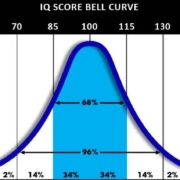Parents often complain to me that their child’s Committee on Special Education (CSE) is trying to lower expectations for their child due to a cognitive impairment, often based on IQ scores.[1] However, in its 2017 Endrew F.[2] opinion, the Supreme Court made clear that all students with disabilities must have Individualized Education Plans (IEPs) that are “appropriately ambitious in light of his circumstances.” “Every child should have the chance to meet challenging objectives.” “The IEP must also describe the ‘special education and related services … that will be provided’ so that the child may ‘advance appropriately toward attaining the annual goals’ and, when possible, ‘be involved in and make progress in the general education curriculum.” §1414(d)(1)(A)(i)(IV) of the Individuals with Disabilities Education Act (IDEA).
Federal law, including the IDEA and the Every Student Succeeds Act (ESSA) does allow states to adopt “alternate achievement standards” for their “alternate assessments” for students with the most significant cognitive disabilities. Districts may conclude that this allows them to provide a different curriculum to these students. But federal law does not permit alternate standards and an alternate curriculum. Federal regulations require that even alternate assessments be “aligned with the State’s challenging academic content standards and challenging student academic achievement standards.” ESSA states that these students must still be instructed on the enrolled-grade content standards, not content from a lower grade. Each state determines what their students should know at each grade level. Therefore, students taking alternative assessments are expected to master the same standards as other students, albeit with less breadth, depth, and complexity.[3]
Closing The Gap
“But no matter what we do, Robbie won’t be at grade level by the end of the year”
You may hear something similar from your CSE to justify lowering expectations. But that’s just not a valid excuse. The U.S. Department of Education’s Office of Special Education and Rehabilitative Services (OSERS) released guidance on providing a Free Appropriate Public Education (FAPE) to students with the most significant cognitive disabilities which stated that “IEP goals must be aligned with grade-level content standards of all children with disabilities.” The IEP Team should still draft annual goals that are ambitious but achievable. “Annual goals need not necessarily result in the child’s reaching grade-level within the year,” “but the goals should be sufficiently ambitious to help close the gap.” This is very important. In practice that means that the fact that the student won’t master all the material in a general education math class does not mean she shouldn’t still be in that class. The goal may be to master 60% of the material in the class. Once the CSE determines the student’s goals, they then have to include the specialized instruction necessary to address the unique needs of the child in order to achieve her goals and ensure her access to the general curriculum. The added supports and services can be expensive for school districts so, though they are not supposed to consider cost, there may be an incentive to lower expectations for the child.
We all know this as parents, and this has been backed by research, that children generally do better when we expect more from them. Ambitious goals lead to children rising to meet these expectations,
[1] This comes up frequently in the Down Syndrome community. https://www.ndsccenter.org/wp-content/uploads/IL-IQ-Testing-Brief.pdf. [2] Endrew F. v. Douglas County School District RE-1, 137 S. Ct. 988 (2017). [3] This standard was adopted by the National Center and State Collaborative (NCSC) which was a multi-state, multi-organizational consortium that was awarded a General Supervision Enhancement Grant (GSEG) in late 2010 by the Office of Special Education Programs (OSEP) in the U.S. Department of Education. The purpose of the grant was to develop an alternate assessment system and related content to assess the English Language Arts and Mathematics achievement of students with the most significant cognitive disabilities. If you have any questions about this or other issues, feel free to contact me.










